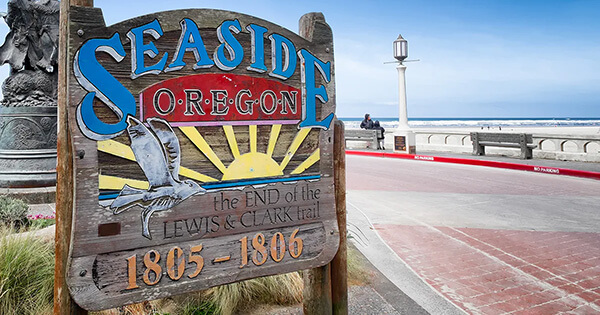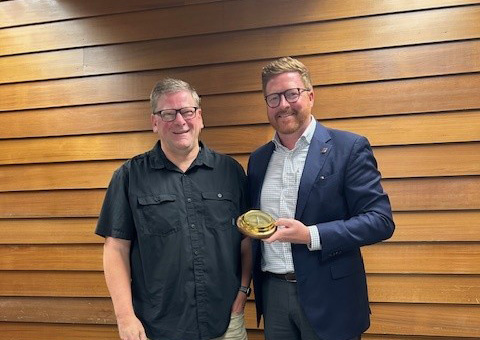By Frank Chmelik and Tim Schermetzler of CSD Attorneys at Law P.S. – WPPA Counsel
Last month we focused on lawsuits and claims where there may be insurance coverage to defend the claim and/or pay any liable amounts. This month we will focus on claims and lawsuits where there is no insurance. Our goal here is to give ports a quick course on what happens when an incident occurs, a claim is filed, or a lawsuit is served.
Uninsured Litigation. Litigation where there are no applicable insurances (typically commercial, lease or real property disputes) are funded by a port. While this type of litigation is somewhat different than claims covered by insurance (see our April 2024 column for insurance covered claims) some common thoughts apply. In uninsured litigation the port hires and directs the attorneys. Here the port’s general counsel or special counsel who will conduct the litigation is selected and paid by the port. Here are a couple of things to consider.
-
First: If a port becomes aware of a matter that may lead to litigation bring in your port’s general counsel to discuss a strategy before your port takes action. For example, talk with the port’s general counsel before issuing a default notice to a tenant or a contractor. This early conversation can avoid costly procedural errors. Make every reasonable effort to settle disputes before litigation. Most of them settle anyway after expending attorney fees and significant staff time.
-
Second: Be especially wary of engaging in litigation with another local government. In our experience, taxpayers are not particularly enamored with two local governments suing each other, each using taxpayer dollars.
-
Third: Make sure the goals of the litigation are clear at the onset. In other words, what is the port trying to accomplish by either suing someone or defending against a lawsuit? The early effort to define goals will save countless hours of attorney fees and avoid misunderstanding.
-
Fourth: If the port intends to use “special counsel” hired just for the litigation, involve the port’s general counsel in selecting the firm, supervising the lawyer and reviewing the bills. I must say that one of the least agreeable tasks I have as a general counsel is calling a special counsel to inquire about (and sometimes ask them to reduce) a bill.
-
Fifth: The initial meeting with the selected lawyer is particularly important. Plan to spend some time with the lawyer discussing every aspect of the case and identifying the timeline, critical documents and expected witnesses. If the litigation involves a particular location or site, visit the site with the lawyer. Remember, port staff has usually lived the events leading up to the litigation. The lawyer is likely hearing all this for the first time.
-
Sixth: Ask the lawyers to “projectize” the litigation. By that, I mean have the lawyers provide a litigation plan, a draft budget, and a projected timeline just like ports do for any other port project. Sure, things may change and at the early stages of litigation, such efforts are equivalent to a “rough order of magnitude” engineer’s estimate, but this exercise will help focus the thinking.
-
Seventh: Plan on actively supervising the litigation. Port staff or general counsel should receive regular reports quarterly from the litigation counsel.
-
Eighth: Periodically revisit the goals, budget and timeline. Think of litigation like a building project. A port would not turn an architect loose and say, “design what you think we need at a cost that makes sense to you.”
-
Ninth: Never let emotions take over. Sure, litigation can become nasty with personal attacks and allegations of port staff or commission misconduct. Rember it is usually all about the money. A number of years ago I asked the principal of investment fund client if he was angry about a commercial lawsuit where the other side had acted fraudulently. The principal responded “Frank, our money never gets made.” That was great advice.
-
Tenth: When a port is involved in litigation there may be comments from the public at port commission meetings or press inquiries. Anticipate this with a careful accurate and short message focusing on the reason for the litigation and the goals of the litigation. For example, if your port is suing a popular tenant for breach of lease obligations the message maybe that the “port is obligated to act to be good stewards of the public’s assets and treasury.” In any event think about this issue ahead of time.
Discovery. Once a complaint is filed and the other side provides a written answer, the “discovery” process starts. Discovery is designed to allow each party to fully understand the other party’s position and to see what evidence the other party may have concerning the dispute. Each side can send written questions – “interrogatories,” and seek documents – “requests for production” from the other party. A port representative must sign these answers under oath. Expect lawyers to ask for all electronic documents in the possession of a port using both the court rules and the Public Records Act. Care should be taken to preserve all relevant documents when a port first senses possible litigation and then devote sufficient staff time to get the answer correct and produce all relevant documents.
As the written discovery progresses the parties will seek to question the other party, their employees and other witnesses under oath before a court reporter and sometimes a videographer – a “deposition.” Since a port (or a business on the other side) can’t “speak,” the other party submits a list of topics, and the port or the other party is required to designate a person to be a “speaking agent” on each topic. These speaking agents are typically referred to as a “30(b)(6) witnesses” – the civil rule that requires an entity to produce a “speaking agent.” They literally answer the questions by saying “the port knowledge is . . .” as opposed to answering based upon their own personal knowledge. Each 30(b)(6) witness is required to understand the collective knowledge of the port and make reasonable inquiries of its past and present employees on the assigned topic. The designated witness will need to review all relevant documents. The lawyers help prepare the documents and prepare the 30(b)(6) witness. Individual port employees may also be placed under oath and deposed as to their personal knowledge. They should not speak on behalf of the port but instead only answer based upon their own personal knowledge. Here again, care should be taken to work with the port’s attorney to prepare for these depositions because the written transcript and the videotape can be used later in motions before the judge or trial.
Mediation. After the discovery process has progressed sufficiently that the parties feel they have enough information there may be “mediation.” In this process, the parties try and reach a settlement by working with a mutually selected experienced mediator (usually for a day). Each party is in a separate room and the mediator attempts to bring the parties to a settlement by shuttling between the rooms. The mediator has no authority to force a settlement; rather, the mediator’s job is to encourage offers and counteroffers to a final settlement all the while discussing the strengths and weaknesses of each party’s case. Typically, the result is a compromise where each party gives more than expected and gets less than they want. It is a grueling process but can get a case settled. Here again one needs to prepare with their attorney for this event to clearly identify the absolute lowest amount the port will accept (or the maximum amount it will pay) and what amount constitutes a victory. Without this analysis upfront (and with the commission in executive session) one can end up settling for too little or paying too much. If any settlement will require commission approval, remember to tell the other parties and the mediator in advance of the mediation.
Arbitration. Unlike mediation, arbitration is a process where the arbitrator makes a decision that is binding on both parties. Arbitration is in lieu of a trial at the courthouse and typically occur as a result of a “arbitration clause” in an agreement, contract or lease. The arbitrator is the judge and the jury. Arbitration is sometimes preferred because it is faster and cheaper and works well for relatively complex disputes (construction contract disputes for example) where the arbitrator can bring particular expertise. Arbitration is sometimes avoided where the issues are relatively common and the port has access to Court assistance. For example, a port as a commercial landlord has some real advantages in the expedited Court processes for commercial landlords. The bottom line regarding arbitration is that it has pluses and minuses, so it is a good idea to discuss with general counsel the advisability of including or agreeing to arbitration clauses in agreements, contracts and leases.
Judicial Resolution. If a matter does not settle or is not subject to arbitration, then it is headed for judicial resolution. The judicial process usually involves lawyers requesting various types of interim relief and orders (called “motions”), interim decisions from the Court and ultimately trial before a judge or a jury. Trial is where a fact finder – either a judge or a jury – determines the facts and then the judge applies the law. Litigation or parts of litigation can sometimes be resolved before trial with motions made to the judge if the judge determines that there is no real dispute as to the facts and the judge merely needs to apply the law. Expect the trial process to take many months and sometimes years.
In summary, litigation needs to be actively managed as a project – really not much different from other port projects. It will take time and staff resources to set the goal of the litigation, provide the necessary documents and testimony and actively manage to a successful result.
As always, consult the port’s general counsel on these topics. And, if you have a particular topic for Knowing the Waters please email me at fchmelik@csdlaw.com or tschermetzler@csdlaw.com.





